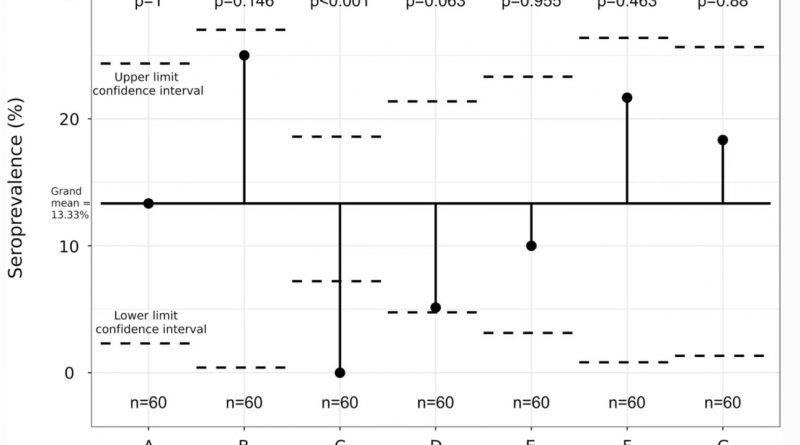Seroprevalence of Toxoplasma gondii and associated risk factors in domestic pigs raised from Cuba
Abstract
A cross-sectional study was carried out to determine the seroprevalence of Toxoplasma gondii and associated risk factors in pigs in the largest pork-producing region in Cuba. Serum samples from 420 pigs, including 210 sows and 210 post-weaning pigs, were tested for antibodies against T. gondii using a commercial indirect enzyme-linked immunosorbent assay. Anti-T. gondii antibodies were detected in 56 animals (13.3%, 95% CI: 10.1-16.6). A generalized estimating equations model revealed that the risk factors associated with higher seropositivity in pigs were altitude (higher in farm’s location < 250 m above sea level (masl) versus ≥ 250 masl) and age (higher in sows compared to post-weaning pigs). The results indicated that this protozoan parasite is widely distributed on pig farms in the study area, which is a public health concern since the consumption of raw or undercooked pork meat products containing tissue cysts is considered one of the main routes of T. gondii transmission worldwide. Control measures should be implemented to reduce the risk of exposure to T. gondii in pigs in Cuba.




